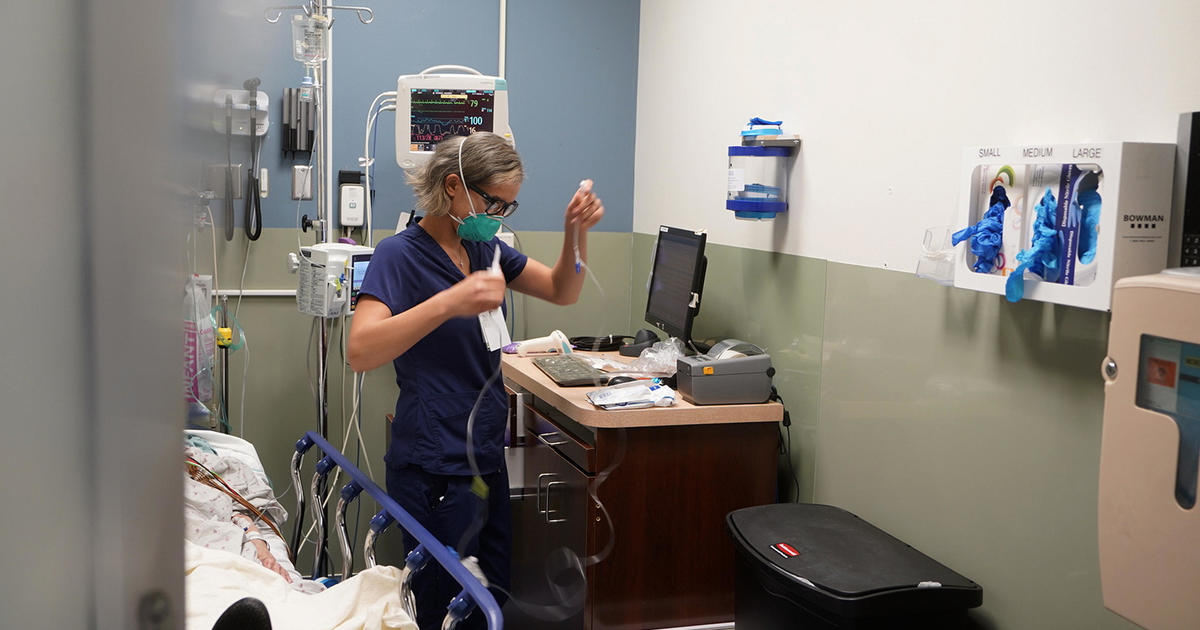California Feels Like It's The Most Excluded State In The Democratic Race
(CNN) -- The big crowd that Vermont Sen. Bernie Sanders attracted to a beachfront rally here last Saturday was exactly what California Democratic officials envisioned when they backed legislation to move up the state's presidential primary to next March, on what's known as "Super Tuesday."
On a warm, hazy afternoon, supporters spilled out along the famed Venice boardwalk as Sanders, his back to the Pacific Ocean, thundered in his trademark rasp against the fossil fuel industry, drug companies, Wall Street and a "corrupt political system." As if sent by central casting, a seagull sat perched atop a streetlight high above Sanders' shoulder as he spoke.
Sanders wasn't alone in California late last week. Thanks to the Democrats' final debate of 2019 in Los Angeles, candidates including former Vice President Joe Biden, Minnesota Sen. Amy Klobuchar and South Bend, Indiana, Mayor Pete Buttigieg all held public events in Los Angeles.
ALSO: Bloomberg Hires Top California Democratic Party Official
But by this week, the leading Democrats in the 2020 field were all scheduled to return to their usual haunts in New Hampshire and especially Iowa, the states that have consumed the vast majority of their efforts this year. Compared to that sustained courtship, the visits to California looked more like a weekend fling.
The flicker of attention may have done more to underscore than alleviate California's perpetual frustration at being eclipsed in the presidential nominating process. California will award 415 pledged delegates to the Democratic convention next summer, far more than any state. History suggests it's likely that more than five million people will vote in the state's Democratic primary.
That will probably be least 20 times as many people -- and much as 25 times as many -- as vote in either Iowa or New Hampshire. California has more college students than Iowa or New Hampshire has adults aged 18 or older, and its Latino population alone is about triple the total population of both states together. And yet no one in California feels confident that the state will exert even a fraction of the influence over the outcome of the race than the two smaller, predominately white states that kick off the nominating process.
"We're definitely getting much more attention and not just for our money," said Los Angeles Mayor Eric Garcetti in an interview. "People are doing real events and they are interacting with real people. I think it's absolutely forward progress, but we haven't arrived at a place where we are comfortable with the culture of asking and demanding from candidates enough and vice versa. I think California is still so big that it's confusing to a lot of campaigns."
Early, then late, then back again
For decades, no state has agonized more openly about how to magnify its influence over the presidential nominating process than California. In the search for more leverage, California over the past quarter century has shifted the date of its primary forward, back and then forward again. But each choice has left activists in the state frustrated at its inability to convert bulk into clout.
"Literally in the modern day, starting really in the '80s, California has not had influence no matter where it's been," says Mickey Kantor, a longtime Los Angeles-based Democratic strategist who managed Jerry Brown's 1976 national presidential campaign, ran Walter Mondale's 1984 effort in California and chaired Bill Clinton's 1992 national campaign.
Through the second half of the 20th century, California anchored a familiar position as the final lap of the primary marathon. After holding its primary in May from 1912 through 1944, the state in 1946 moved its primary for both the presidential and local contests to the first Tuesday in June. That's where the primary remained for the next 50 years, according to data provided by Bob Mulholland, the former longtime political director of the state Democratic Party.
This period provided the heyday of California's influence over the nominating process in both parties. It effectively sealed the Republican presidential nomination in 1964 when Barry Goldwater beat Nelson Rockefeller and the Democratic nomination in 1972 when George McGovern beat Hubert Humphrey. Robert F. Kennedy's win here in 1968 placed him on the cusp of the Democratic nomination until he was tragically assassinated on primary night at the Ambassador Hotel in Los Angeles.
But from the early 1970s to the 1990s, California in its June position was either an afterthought or an exclamation point on races that had been decided by the time the candidates arrived. Jimmy Carter twice lost here (to then-Gov. Jerry Brown in 1976 and Sen. Edward M. Kennedy in 1980), but that didn't stop him from claiming the Democratic nomination both times; likewise, Gary Hart's decisive victory over Mondale here in 1984 came too late to prevent the former vice president's nomination. Beyond the timing, California's influence was also diminished by the Democratic Party rules changes after 1972 that outlawed its previous practice of awarding all of the state's delegates to the statewide winner.
Frustrated by its eroding position, state political leaders in both parties engineered legislation that moved up the state's presidential primary to March 1996. The primary stayed in March through 2004 and then California in 2008 joined a procession of states that leapfrogged even earlier to February. "The catalyst for California moving early was nobody pays attention to us, but part two was: all these other states moved early so why can't we?" says Los Angeles based-Democratic strategist Bill Carrick, who has run Sen. Dianne Feinstein's campaigns in the state.
Restoring influence
The move to an earlier primary date restored some influence for California. George W. Bush's win here in the 2000 Republican primary helped him beat back the unexpected challenge from the late Arizona Sen. John McCain; in the 2008 Democratic primary, Hillary Clinton invested heavily in the state and routed Barack Obama by over 400,000 votes.
But even in those instances, the California outcome was just one drop in a nationwide cascade. In both those races, California was part of the bulging concentration of states that held their primaries on Super Tuesday. In Bush's case, California reinforced the results of the other major contests and effectively ended McCain's insurgency. But in the 2008 Democratic race, California blended into the crowd: though it was the largest prize on the board, press coverage emphasized that Obama won more of the 23 states that voted that day than Clinton did. And in fact, after Clinton's decisive California win, Obama beat her in the next 11 states that voted.
With Democrats disappointed again by their limited national influence, and state legislators unhappy with facing a primary so far before the general election, California then voted to move back its primary to June, where it was held in both 2012 and 2016. In 2016, Sanders barnstormed the state for weeks in what was probably the most sustained California presidential primary effort since Gary Hart in 1984. But Clinton had effectively clinched the nomination even before she won California, and the same was true for Mitt Romney in the GOP race in 2012.
Frustrated once more, the state legislature voted to shift the primary in 2020 back to March, when it will again jostle with the other 13 states (not to mention American Samoa) elbowing for influence on Super Tuesday. California offers more delegates than any of them, but its competitors include several other larger states (Texas, North Carolina, Virginia, Minnesota and Colorado) that the campaigns cannot ignore. Combined, the other Super Tuesday states will award more than twice as many delegates as California does, according to tabulations by the CNN political unit.
The realities of the 2020 calendar
That daunting map will pressure almost every Democratic campaign into difficult choices about which states to prioritize on Super Tuesday. Across such a sprawling battlefield, "It is hard to compete simultaneously in terms of dollars and people on the ground," says Kate Bedingfield, Biden's deputy campaign manager and communications director.
In fact, with most of the delegates in the Democratic race awarded based on the outcome in individual congressional districts, campaign strategists say they will be forced to target down to the local level. "Every campaign, including well-funded campaigns, are going to have to make hard choices on Super Tuesday," says Jeff Weaver, a senior adviser to Sanders.
Given those pressures, it's likely that California will be disappointed again in the amount of attention the candidates devote to it.
So far, only the two self-funding billionaires in the race -- investor Tom Steyer and former New York City Mayor Michael Bloomberg -- have spent meaningfully on television advertising in the state. According to Kantar Media/CMAG data analyzed by the CNN political unit, Bloomberg has already bombarded the state with $14 million in ad spending and Steyer has spent $2.3 million.
Bloomberg is operating on an unprecedented strategy of ignoring the first four voting states and blanketing later states on the calendar with television advertising and paid staff. None of the contenders leading in the national and early state polls -- Biden, Sanders, Buttigieg and Massachusetts Sen. Elizabeth Warren -- have spent anything on television in California yet. By contrast, the field has already spent about $40 million on television in Iowa, $21 million in New Hampshire and nearly $24 million in South Carolina and Nevada combined, according to the CNN figures.
Sanders likely has California's most energetic grassroots organization. After his sustained campaigning here in 2016, he ran well in California, drawing about 46% against Clinton, nearly 2.4 million votes in all. As important, Weaver says, Sanders built a huge volunteer base that he is deploying again in 2020. Last weekend, Sanders' organizers knocked on about 25,000 doors across the state, Weaver said.
"No one can match that," he says, "and that number will ramp up considerably over the coming months."
The question in a state this big is whether any campaign can afford an organizing or advertising effort large enough to move a critical mass of voters, especially given how many other states will be demanding the candidates' attention at the same time. Many local observers believe that, instead, the results in California are likely to be heavily shaped by the results in the earlier states.
While many Californians vote by mail, and the first ballots will reach them between Iowa and New Hampshire next February, Mulholland says that typically 90% of all votes are cast either on Election Day or the 10 days preceding it. That means Californians will be voting precisely as the results emerge from the first contests of Iowa, New Hampshire, Nevada and particularly South Carolina, which will vote on February 29, just three days before the Super Tuesday states.
Once again, California appears more likely to be submerged in a political wave than to start one. That prospect highlights what many see as the flaw in California's calculations over the years. It has focused its search for influence in the nominating process on moving toward the head of the line. But apart from the four states that are granted the privileged position at the very front of the calendar, influence in the primaries has usually come not from being early; it has come from being alone.
States that have carved out a place on the calendar where they have little or no competition from other states -- like Wisconsin in early April or New York and Pennsylvania in late April -- have typically drawn sustained attention from the campaigns and proved influential in the outcome, even if they vote later. Whatever California decides next March, it will share the spotlight with over a dozen other states -- and given how long it usually takes California to count all of its ballots, its results may not be fully apparent until well after the primary cavalcade has rolled onto other contests. "Being on Super Tuesday is not meaningful to a state the size of California," says Carrick. "In fact, it diminishes your meaning."
Even as California revels in more attention from the 2020 Democratic field, it may be on track to learn that uncomfortable lesson again in the new year.
The-CNN-Wire
™ & © 2019 Cable News Network, Inc., a WarnerMedia Company. All rights reserved.



